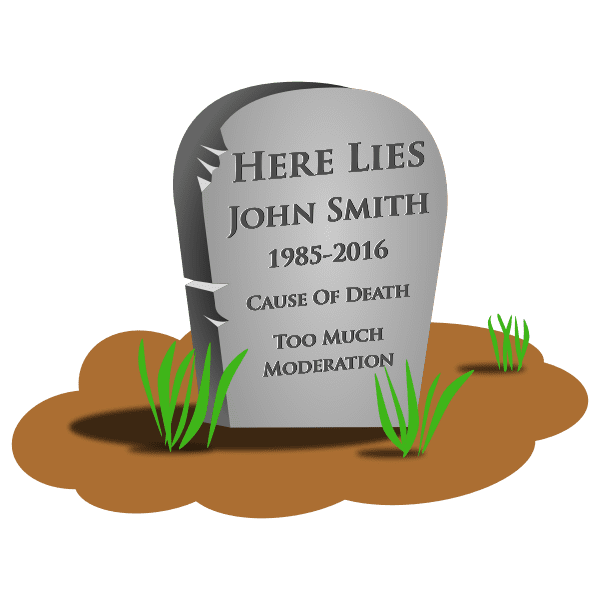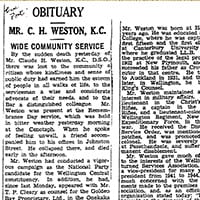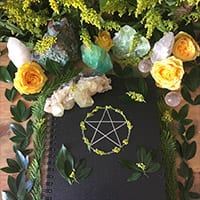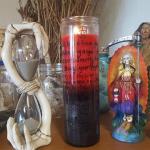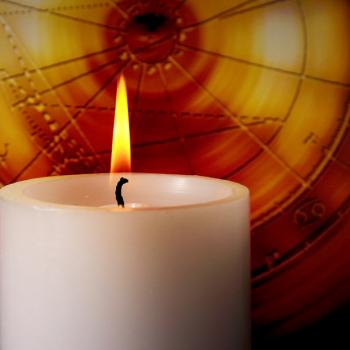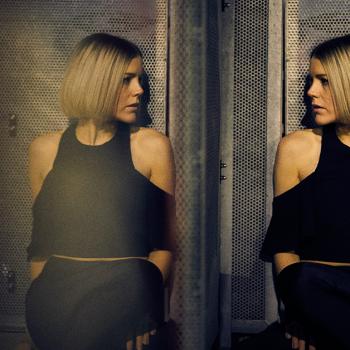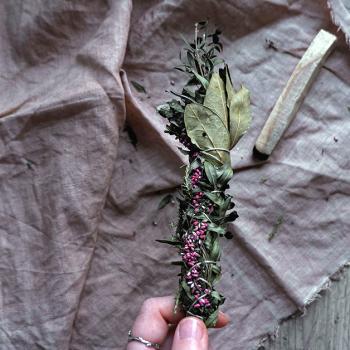Dying in America is often nuanced and emotional and that is without even considering the actual bummer of the cessation of life. It becomes exponentially more complicated when you die with some part of your not fitting into the traditional, Christian, CIS-normative lifestyle. Family prejudices come starkly focus over how we lived our lives, what gods we worshiped, and who we took as our partners. People who disapproved of anything we did often cannot resist that last ditch effort to control how the world views us and will often struggle for control against our own wishes.
We do not like to think about death, especially our own, and yet we all know that at least at this point in human development, it is inevitable. With the COVID-19 crisis cutting a wide swath of death across the nation, many of us have reason to consider our own mortality even more than usual. We ignore death, refuse to talk about it, and certainly refuse to plan for it because that puts us face to face with the fragility of life.
Death has been a busy girl lately
I recognize that not everyone shares my experience, but in the past few weeks, it feels like I am encountering the death of a loved one every time I turn around. In the past three weeks since this writing, I have lost a beloved pet of 14 years, a dear friend’s son died, and two dear friends died… none of which was at all related to COVID-19. A woman who rents space in my shop has had five family members die unexpectedly within the past year, also not COVID-19 related. The other woman who rents space in my shop learned on Thursday that her father is in the hospital in critical condition, also not COVID-19 related.
It seems like everywhere I turn, I encounter dying people and dying pets. I know so many people who are currently grieving or are fearful for the safety of someone they love.
Make the plans when you are not dying
People do terrible things to one another when they are mourning or when a loved one is dying. I am convinced that the death of a loved one brings out the worst aspects of us all. I have seen it repeatedly in the deaths of my own family and other loved ones. That is why creating a detailed and widely known death plan is one of the most important and vital things you will ever do. And yet, almost no one does it, especially if they are not elderly. Do it now, before you are dying.
In 1986, my father died at age fifty-one without a will and without life insurance. He was the sole family wage-earner and it threw my entire family into a downward spiral from which they never recovered. In 2003, my mother died, also without a will and a life insurance. She created a will after my father died, but it somehow managed to disappear during the intervening years. The probate was terrible and tore my family apart.
Not just about wills
A dear friend of mine became a widow while her wife was away with family. The family did not acknowledge the long-time marriage and four days passed before my friend learned that her wife had died. By that time, the family had disposed of the wife’s belongings that she had brought with her and all my friend could do was produce the marriage certificate to claim the body. This allowed my friend’s wife to be cremated as she had desired rather than buried as the family had planned to do, but forfeited sacred spiritual items the wife carried with her disposed of by the family.
When another loved one of mine died as a devout Catholic, one family member secretly arranged for her to have a Mormon baptism against her wishes as she was dying because of fears for her immortal soul.
Dying as a Pagan carries its own challenges, especially if your family is not supportive of your beliefs. If you are a person who has no concerns about what happens to their belongings or their body after they have passed, having a death plan simply makes the funereal process easier for your next-of-kin. If you do care about those things, it is the only way to ensure that your wishes are known and – we can hope – honored.
Think through the details
My go-to guru for all things death and dying is author, mortician, and brilliant public speaker, Tomás Prower (Morbid Magic, Queer Magic, both from Llewellyn). Truly, I could listen to him talk about death for hours at a time…and have. I have never met a human who knows more about dying in America. Some of the things I mention in this post I learned from him, but really, he is the master if you have specific questions or interests. I’m not saying to blow up his inbox, but if you have an event in California and can coax him there, ask him to speak on Pagan Death Rites.
What I will do here is list some considerations that you should include when you construct your death plan. This is not about who gets your last paycheck or pays for your memorial service. Those are obvious concerns anyone must consider. I am digging into those weird thoughts that you may not have until it is too late to make your wishes known. Legal requirements vary from state to state, so please research your local information for the most accurate legal details.
Have the difficult conversations
Talk to the people around you who are best suited for handling your final wishes. Just because a topic is depressing and creepy to consider does not mean ignoring it is your best approach. Dig deep and think about how you want your body and your effects managed and put it into writing. Here are some things to consider well before you slip between the veils.
Presume the worst
Presume the worst when you plan your death. Imagine that you may be unable to vocalize or communicate in your final days. Do not presume that your significant other, children, siblings, or parents can reasonably function to make decisions on your behalf. Consider that everyone you know will likely turn into an asshole, go reclusive, or get hysterical when you pass. This means you have to make the choices now so they do not have to do so (or are restricted from doing so) then.
Purge the hoard
Pagans tend to be hoarders. It’s just what we do. Witches likely have a collection of way too many jars with lids and more books than anyone can ever read. Take a look at your possessions with a critical eye and really think about what is meaningful to you and what is not. Think about what your loved ones will recognize as important and what will look like junk to them. Invest the time throughout your life to downsize and purge away anything that – to go all Marie Condo – does not spark joy in your life or have true meaning for you. Do not leave a giant mound of trash for grieving loved ones to contend with after you are gone.
Choose specific advocates
Who will best represent your wishes? Be sure and choose an alternate as well in case both you and your advocate end up taking a Thelma and Louise-style car dive off a cliff. Make sure you inform both advocates that you have drafted them into this role and tell them your needs regarding the management of your estate, however grand or meager it may be. The advocate is the one who will be your postmortem pit bull and will stand off against anyone who attempts to assert their own will onto your mortal remains and your dragon hoard of possessions.
Legally document your instructions and share them
For the most important instructions, create a legal document through a notary or an attorney and make sure there are multiple copies. Each advocate should have a copy, put a copy in a safe deposit box or other secure location, and have one on file with your legal representative if you have one. I am a fan of making a death binder that has your full postmortem operating instructions laid out in specific detail. Leave nothing to change or interpretation. Grieving people are neither generous nor wise in most cases.
Really consider what is important to you regarding the care of your corpse, the kind of memorial, funeral, or celebration of life you want to have, and the distribution or disposal of your belongings. If it is not important to you, do not include it. If it is important to you, make certain to detail your wishes to the most minute degree. Update the documents as needed. Life happens and things change. Be sure and review your death plan at least once a year, making any changes that are needed. Keep it current.
Make a contact list
Not everyone you know knows everyone you know. In your death binder, maintain a list of people who must be informed of your death, as well as their current contact information. Your mother may not know how to contact your High Priest. Your spouse may know you have an online friend in Chicago that you talk to daily but might not have their phone number and if they do, might not be able to remember it in a crisis. Make the list.
Think clergy
In some instances when a person is dying, the hospital, hospice, or other caregivers want to know your wishes in terms of clergy to come in and provide comfort or offer rituals regarding the death. This is optional, but if you feel you will want a person from your spiritual path to participate in any ritual releasing as you pass, make sure this is included in your death plan. Be sure and list several alternatives in case one or two of your top choices are unavailable.
Write your own obituary
If you want to be remembered in a specific way, consider writing out facts you would like to see included in your obituary. A friend of mine and I used to tease one another by writing especially acerbic and catty obituaries for one another (while we were still very much alive). You cannot always trust your friends or loved ones to have the right words, know the name of the circle you founded, or even the books you wrote. If you want to be represented to the world in a certain way upon your death, write it out.
Funereal details
If you have preferences for what you want to wear, what music you want played, people you want banned from your memorial service (hey, life happens), or other specifics, be sure to include those. Think about jewelry. Do you want to be buried with the rings you wore every day and other significant jewelry or pass them on to someone? I have a friend I have kept alive for years by telling her that when she dies, I will see to it she is buried in a muumuu with her hair in a banana clip.
Personal security
Most people have things in their life they want kept private. Make sure your advocates know your computer password so they can perform a system restore and wipe your hard drive before it goes into the world. Most social media platforms have a “memorialization setting” where you can designate another person to manage your account after you have died. Show one of your advocates how to restore your phone and erase contacts and messages. Ain’t nobody’s business. Likewise, also make sure that if you have diaries, journals, or other personal writings that they are all kept in one place and that your advocates know where to find them. It’s bonfire time. When you are dying, you may not have time or opportunity to let your advocate know that you have emails or downloads you would rather no one else saw.
Don’t forget the pets
Most people appoint postmortem guardians for their children when needed, but don’t forget to make accommodations for your pets and arrange for someone to feed and care for your fur, fin, and scale-babies while you are incapacitated or upon your death.
Sacred items
Non-pagan families often fail to recognize the significance of our stones, statues, books, and other sacred altar and ritual items, thinking at best that they are just pretty ornamentation. If you are concerned that your sacred items will land in on a shelf at Goodwill to be pawed by every set of hands that comes into the store, have your advocates go through your items before the family gets to them so that your spiritual belongings go where you want them to go. Since many states automatically pass legal ownership of the belongings of the deceased to the next of kin, this arrangement should be specified in a will or other legally binding document and your advocate still may have to use aggression to fulfill your wishes.
Dying sucks
I don’t want to die. My father died at age 51 and my mother died at age 60. I am 58, so I am damned close to outliving them both. The thought of having a mere ten or twenty or thirty years left to do all the things I still want to do takes my breath away. I also must consider that at my age, people no longer tilt their head to the side, furrow their brow, and say, “Oh, she was so young!” They just nod and silently subtract their age from my own. Mortality… agh.
We all have that final appointment with Death and unfortunately, few of us know when that will be. What we do know, however, is how we want things managed when we do go, so make those death binders and dole them out as needed. Or dictate the information to a Virgo friend and let them do it.
By the way, according to Tomás, almost any form of funeral is a go as long as you have enough money to pay for it, so start saving now for that pyre, kids.
PS: Read this great article on death by one of my favorite bloggers, John Beckett.



